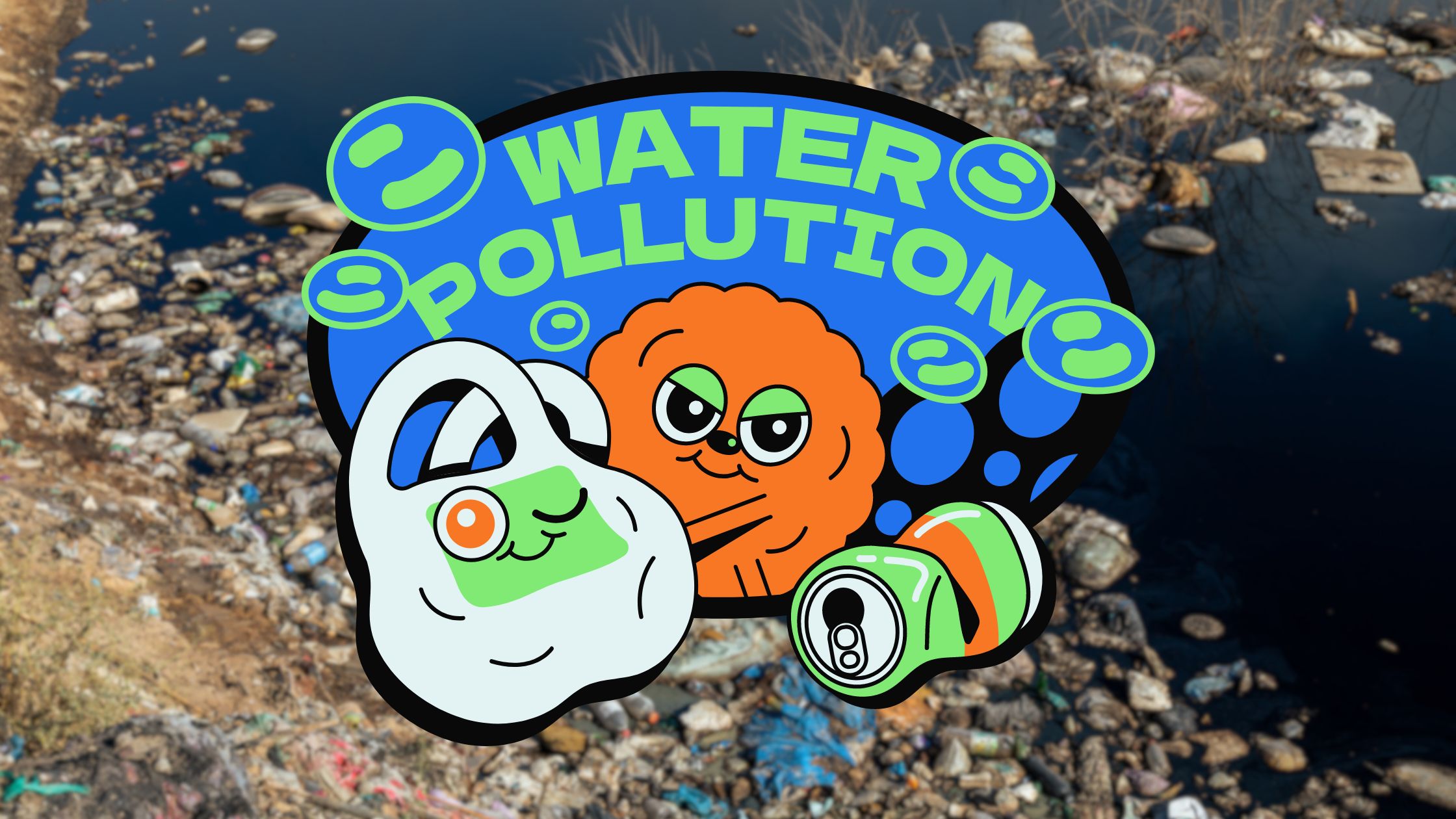
Water pollution happens when harmful substances get into lakes, rivers, oceans, and even the water underground. This makes the water dirty and unsafe for people to drink, for fish to live in, and for fun activities like swimming.
Main Causes of Water Pollution:
Point Source Pollution: This type of pollution comes from specific places you can point to. Examples include:
- Factories: Sometimes factories release dirty water that has chemicals and other harmful stuff straight into rivers or lakes.
- Sewage: Wastewater from homes and businesses that haven't been cleaned can end up in water bodies, bringing in germs and nutrients that shouldn't be there.
- Farms: When it rains, fertilizers, pesticides, and herbicides used on crops can wash into nearby streams and rivers.
Non-Point Source Pollution: This type of pollution comes from many places, making it harder to control. Examples include:
- City Streets: Rainwater can wash oil, trash, and other pollutants from roads and parking lots into storm drains, which often lead to rivers and lakes.
- Farms: Similar to point source pollution, excess fertilizers and chemicals from farmlands can get carried away by rainwater.
- Air Pollution: Harmful gases from cars and factories can dissolve in rain and fall into water bodies, making the water acidic.
Other Sources:
- Oil Spills: Accidental or intentional release of oil into oceans can severely harm marine life and ecosystems.
- Plastic Waste: Plastic trash in water can harm animals that get tangled in it or eat it, mistaking it for food.
- Medications: When people flush medicines down the toilet, these drugs can end up in rivers and lakes, affecting the water quality.
Consequences of Water Pollution:
Water pollution can cause many problems, including:
- Health Issues: Drinking or swimming in polluted water can make people sick with diseases like diarrhea, cholera, and typhoid fever. Long-term exposure can lead to more severe health problems like cancer.
- Harm to Wildlife: Pollutants can poison fish, birds, and other animals that live in or near water.
- Water Shortages: When water gets too polluted, it becomes unusable, leading to less clean water for drinking, farming, and industry.
What We Can Do:
To fight water pollution, we need to:
-
Regulate Waste: Make sure factories and sewage plants clean their wastewater before releasing it.
-
Promote Sustainable Farming: Use fewer chemicals on crops and manage runoff better.
-
Improve Waste Treatment: Build and maintain systems that clean water before it goes back into nature.
-
Be Responsible: Dispose of trash properly, use environmentally friendly products, and never flush medications down the toilet.
By working together, we can help keep our water clean and safe for everyone.
Learn more new informational things by playing the HamroQuiz gamified version: Register Today
